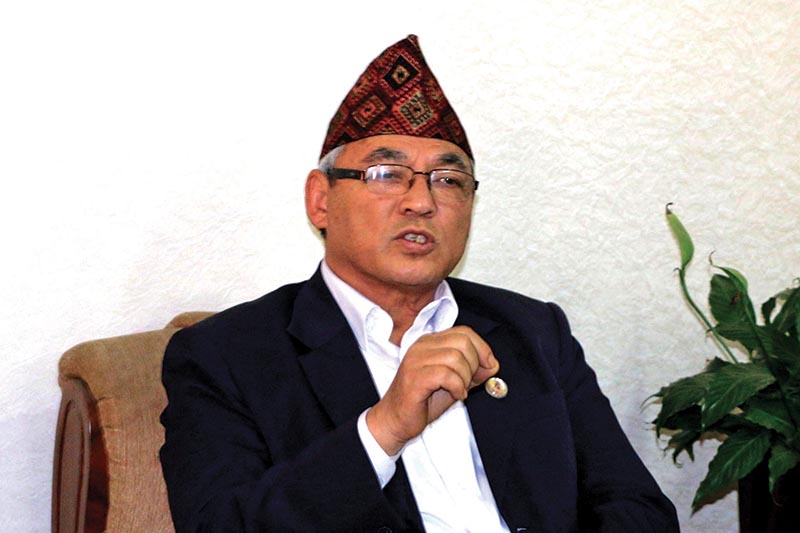Home minister defends govt's decision
Kathmandu, July 4
Minister of Home Affairs Ram Bahadur Thapa today defended the government’s declaration of certain places in Kathmandu as prohibited zones, saying it was a move taken to maintain the rule of law.
Responding to lawmakers’ queries at the joint meeting of House of Representatives and National Assembly, Minister Thapa said the government was not trying to impose autocratic rule as claimed by the opposition parties. “People have the right to criticise the government, but there are places designated by the government for holding protests even in foreign countries,” he said, adding that the restrictions were placed for the good of the people and the country.
“If lawmakers elected by the people are unhappy about it, we can sit together and discuss the issue,” he said.
A week ago, the Ministry of Home Affairs had designated seven places in Kathmandu, six Lalitpur and one in Bhaktapur as protest zones.
Former prime minister and Naya Shakti Party-Nepal Chair Baburam Bhattarai said the government’s decision to declare prohibited zones was against the spirit of democracy. “The decision curtails the democratic rights of the people,” he added.
Lawmakers, including those from the ruling Nepal Communist Party (NCP) suggested to the government to take measures to prevent possible loss of lives and property during monsoon.
Meanwhile, NSP-N Chair Bhattarai urged the government to withdraw the National Medical Education Bill from the Parliament. Stating that the bill was prepared only to protect the interest of businessmen and not the people. He also urged the government to save the life of Dr Govinda KC, who was on hunger strike.
Lawmakers from the Nepali Congress also criticised the government for delaying justice to Ganga Maya Adhikari, who has been on a hunger strike for the past 36 days. The NC obstructed the House proceedings and demanded that the MoHA furnish clarification on the issue.
Minister Thapa said the government was following the Supreme Court’s decision and the issue would be handled by transitional justice mechanisms.






